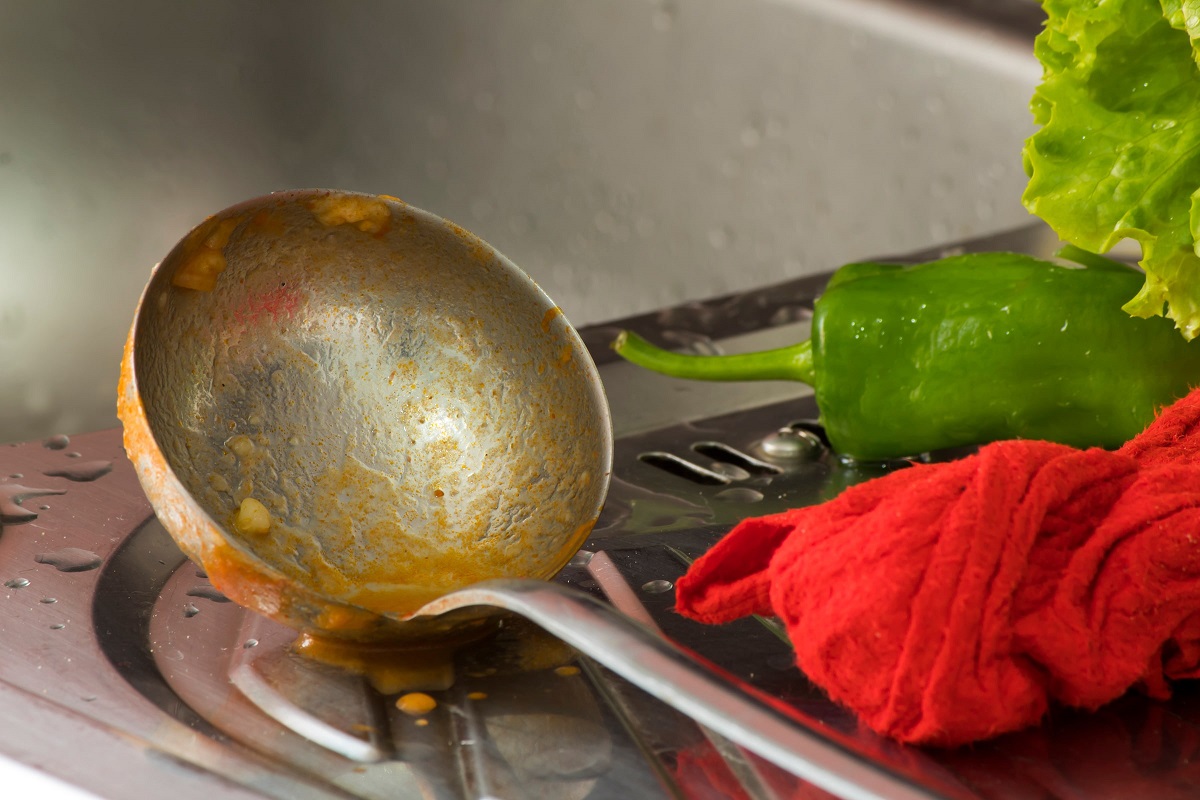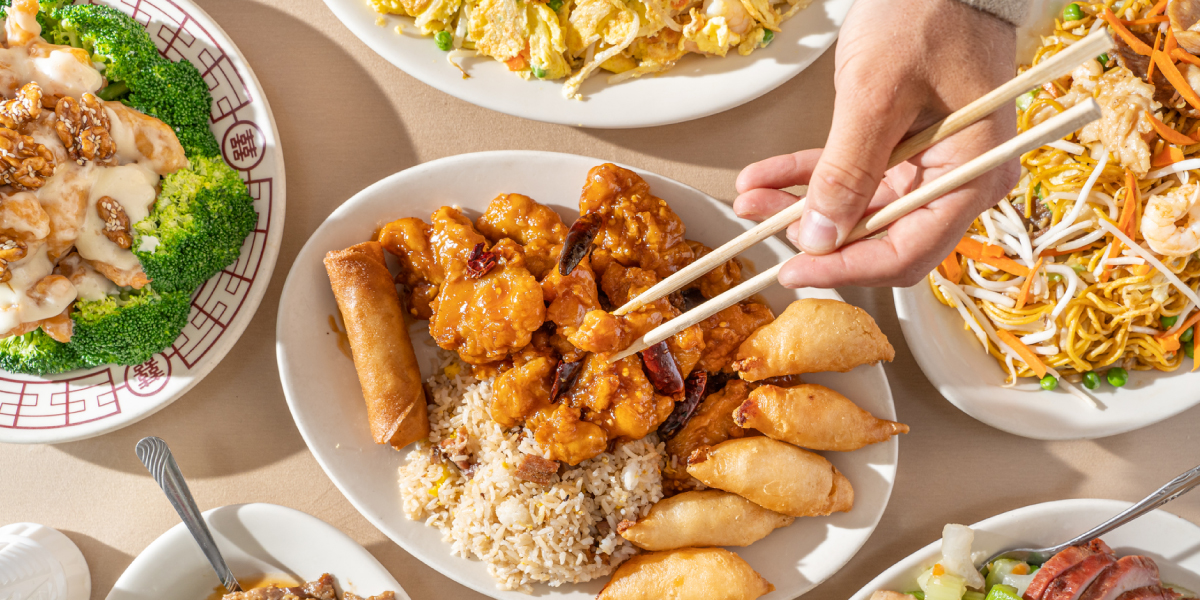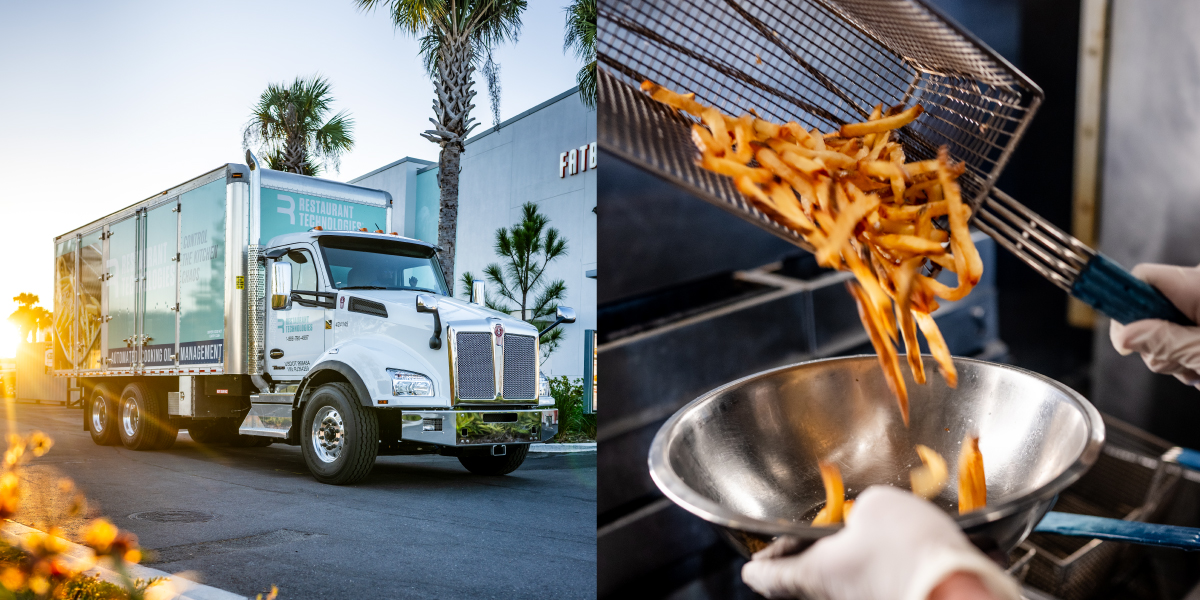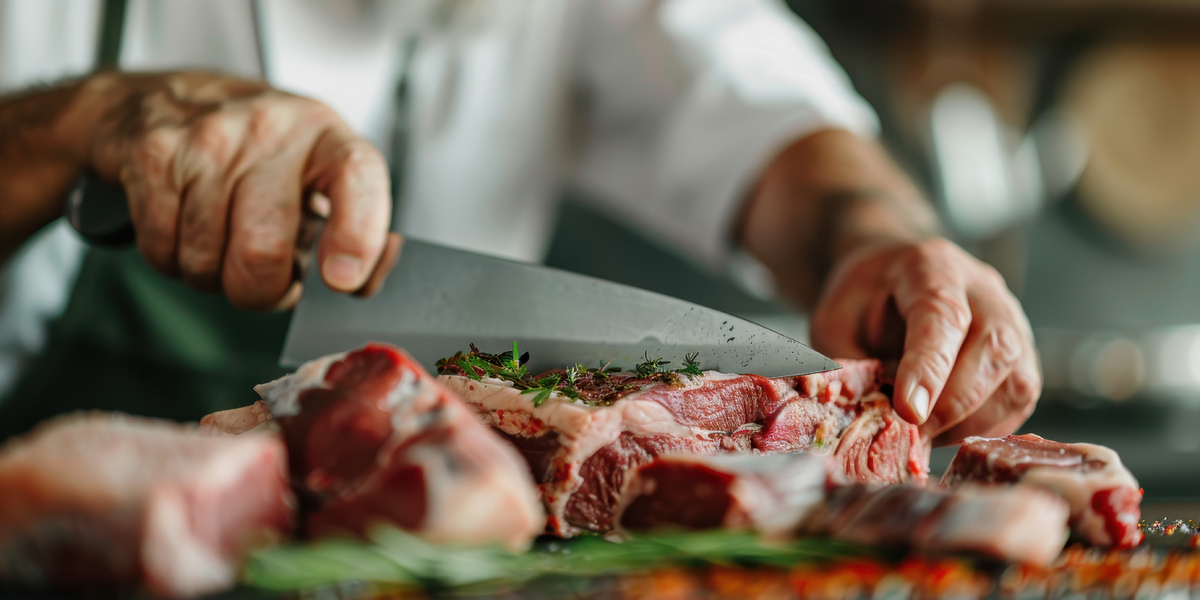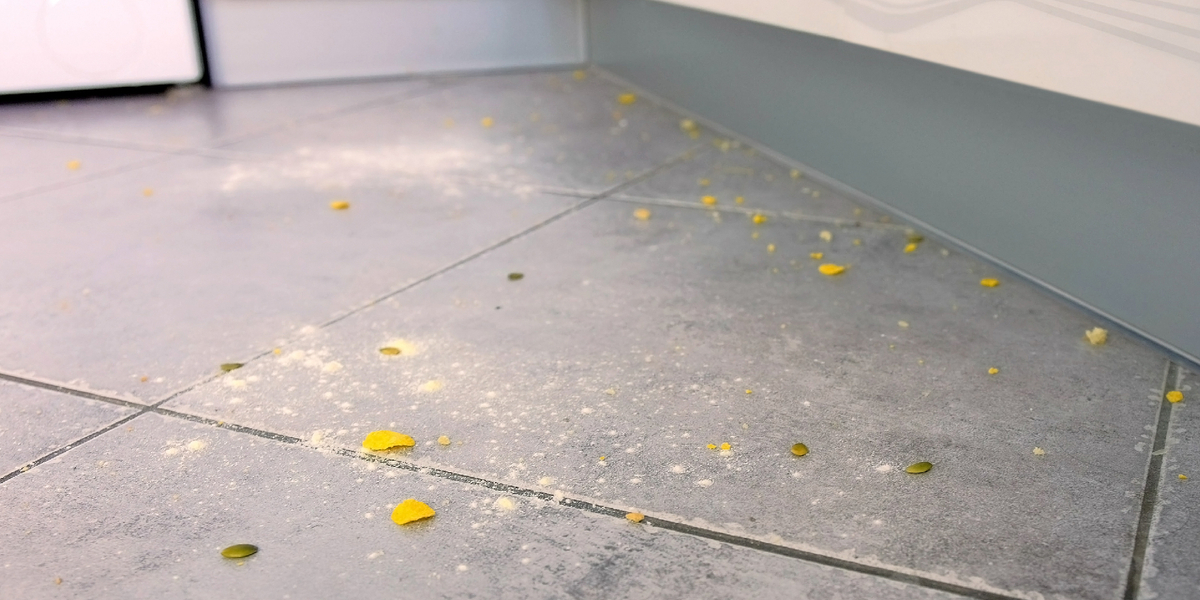Cooking oil is a cornerstone in commercial kitchens. In fact, BOH managers, restaurant owners, and chefs like you know that your kitchen operations need fresh cooking oil to ensure your customers’ satisfaction.
But no matter how many precautions you take in your kitchen, cooking oil is susceptible to becoming contaminated. The result? Food that doesn’t reach your or your patrons’ expectations and a potential loss of customer confidence (and their return visits).1 Ensuring proper commercial cooking oil management and food safety measures is crucial to maintaining the quality and reputation of your restaurant.
Below, you’ll find 4 of the primary causes of cooking oil contamination—and strategies for how to avoid them.
Why Is Maintaining Clean Cooking Oil Important?
First things first: why is preventing cooking oil contamination critical to your restaurant’s success?
Award-winning restaurants, quick service restaurants (QSRs), and breakfast joints (among other venues) all depend on cooking oil for a variety of dishes.2 It’s the ingredient that gives egg rolls their alluring golden texture; the secret to a perfect plate of fried calamari.
Yet, as with nearly all organic substances, edible oils like olive oil and sunflower oil are prone to degradation and contamination. This can take one of your most popular dishes from delicious to, well, rancid.3 In turn, you may experience:
- Reduced quality and taste in the food products you deliver
- Decreased customer satisfaction4
- Reduced customer loyalty
- Increased equipment maintenance5
All of this may factor into your restaurant’s bottom line. The solution? Discovering what may be tainting your cooking oil and working towards avoiding it.
Here are the top four culprits.
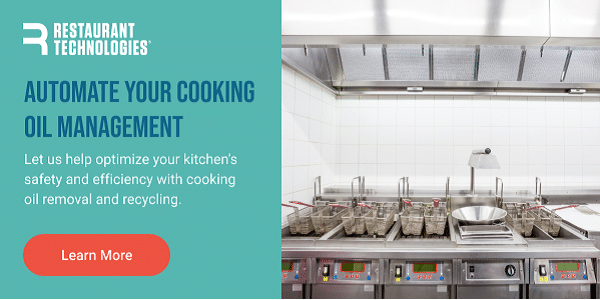
1. Salt
It might arrive as a surprise that salt can expedite oxidation, or a chemical process that diminishes cooking oil’s quality (and, therefore, taste).6,7 What’s more, salted items may generate water. This can lead to foam formation, which further causes oil degradation.
How can you tell if salt is affecting your cooking oil?
- Oil may appear darker in color
- Your dishes might taste off
- You notice foam forming
The Solution
Experts suggest holding off on salting your food products until after frying. Additionally, refrain from refrying eats that have already been salted.
2. Food Particles
Food particles are part and parcel of any busy kitchen.
But food bits that fall to the bottom of your fryer can result in an accumulation of carbon that may threaten the longevity of your cooking oil and alter the flavor of your food—and not in a good way. This is particularly true if you use the same batch of oil to prep multiple orders: flavors might mingle and cling to other eats, thus spoiling the purity of your dishes. These food particles can act as a pollutant, further compromising the quality of your cooking oil and the taste of your dishes.
The Solution
Consistently clearing your fryer of crumbs and other particles may help uphold the freshness of your cooking oil. Skimming your vats on a daily basis can also help prevent the accumulation of carbon and the spoiled oil that can follow it.
Routine filtering is also essential—a task that can be accomplished with a commercial cooking oil management system like Restaurant Technologies’ Total Oil Management. This is one of the key services for restaurants, ensuring your kitchen runs efficiently and your food maintains its high quality.
3. Cleaning Agents
A clean kitchen is crucial to a thriving operation. Nonetheless, spraying cleaners near your fryer can accidentally cause chemicals to get into your cooking oil and potentially cause health problems for your customers
How?
Sodium hypochlorite—a chief ingredient in cleansers, disinfectants and some degreasers—can lead to poisoning.8 You may believe the chance of this may be minimal, but nonetheless, the health of your customers and employees is paramount.
Additionally, improper cleaning practices can contribute to unpleasant odors, and the last thing you want is for customers to complain that your restaurant smells like sewage.
The Solution
Proper storage, removal, and recycling of your used cooking oil can help reduce the chance of that ever-important frying oil coming into contact with anything that may be harmful to its longevity and the health of others. Further, make sure that your BOH staff doesn’t spray cleaning agents that may interact with what’s cooking in your pan.
4. Heat
It may seem strange to say that heat can wreak havoc on your cooking oil: it’s the element that gives rise (in more ways than one) to your food.
And yet, excessive heat serves as a ‘contaminant’ in that it may9:
- Cause oil to break down faster
- Generate toxic compounds
- Create bitter flavors in your dishes
The Solution
Baking, frying, and grilling often require high temperatures, but it’s imperative that your chefs and BOH staff avoid nearing the smoke point. This is the point of cooking with oil at high temperatures that may release detrimental substances.
Simplify Your Cooking Oil Operations with Restaurant Technologies
Estimates suggest that restaurants go through as many as 35 gallons of cooking oil per day.10 This alone emphasizes how important it is for you to keep your cooking oil free of contaminants and primed to create lick-your-lips delicious dishes.
Restaurant Technologies simplifies this process. In addition to bulk oil delivery, we also offer all that you need to keep your cooking oil fresh and effective, from monitoring your frying oil reserves to removing and recycling your waste.
Give your restaurant a lasting lift by partnering with Restaurant Technologies.
Sources:
- Restaurant Engine. Are these 3 factors keeping your restaurant customers away?https://restaurantengine.com/factors-keeping-your-restaurant-customers-away
- Restaurant Owner.com. What restaurant owners should know about cooking oil. https://www.restaurantowner.com/public/What-Restaurant-Operators-Should-Know-About-Cooking-Oil.cfm
- University of Connecticut. Oils: tips for storage and preventing spoilage. https://healthyfamilyct.cahnr.uconn.edu/2021/04/30/oils-tips-for-storage-and-preventing-spoilage/
- Future Business Journal. Satisfaction and revisit intentions at fast food restaurants. https://fbj.springeropen.com/articles/10.1186/s43093-020-00021-0
- Henny Penny. 5 harmful consequences of not filtering your frying oil. https://www.hennypenny.com/5-harmful-consequences-of-not-filtering-your-frying-oil/
- Pitco. 6 enemies of frying oil and how to defeat them. https://www.pitco.com/blog/6-enemies-of-frying-oil-and-how-to-combat-them
- Anderson International Corp. Oil oxidation: how to measure it and why it matters. https://www.andersonintl.com/oil-oxidation-how-to-measure-it-and-why-it-matters
- Mount Sinai. Sodium hypochlorite poisoning. https://www.mountsinai.org/health-library/poison/sodium-hypochlorite-poiso
- Colorado State University. Cooking with fats and oils: can they withstand the heat?https://www.chhs.colostate.edu/krnc/monthly-blog/cooking-with-fats-and-oils/#
- NW Biofuel. How is used restaurant oil recycled? https://nwbiofuel.com/how-is-used-restaurant-cooking-oil-recycled
